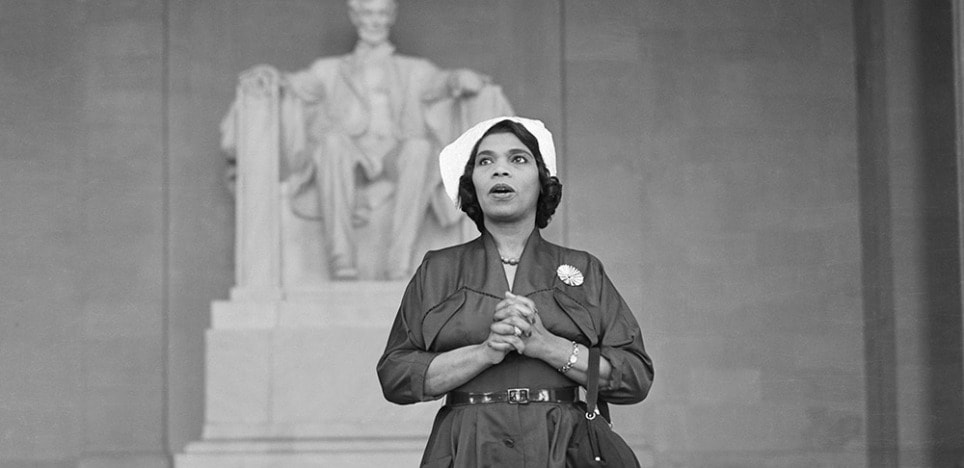Marian Anderson
(February 27, 1897 – April 8, 1993)
If God has power in the world, surely it must be more like the power of Marian Anderson's voice at the Lincoln Memorial on April 9, 1939, than that of guns and bombs. Surely the God who can't make the world 'right' with unilateral power, can inspire it toward goodness through the power of a beautiful, brave voice. And surely as we follow her example, using our talents whatever they are to lift burdens and reduce fear and promote compassion, we become, in our small way, God's voice, too.
"On Easter Sunday in 1939, more than 75,000 people come to the Lincoln Memorial in Washington, D.C., to hear famed African-American contralto Marian Anderson give a free open-air concert.... Anderson had been scheduled to sing at Washington’s Constitution Hall, but the Daughters of the American Revolution, a political organization that helped manage the concert hall, denied her the right to perform because of her race. The first lady, Eleanor Roosevelt, resigned her membership from the organization in protest, and Anderson’s alternate performance at the Lincoln Memorial served greatly to raise awareness of the problem of racial discrimination in America."
NPR Story on Marian Anderson
singing at the Lincoln Memorial

Patricia Campbell Carlson of Spirituality and Practice
"Born in 1897, American contralto Marian Anderson was the first African-American to sing at the Metropolitan Opera (Verdi's "Masked Ball," 1955). Equally gifted in renditions of spirituals and German lieder, Anderson combined her faith, dignity, and gentle spirit with her uniquely beautiful voice. The great conductor Toscanini felt that "hers is a voice that we hear only once in a hundred years."
When Anderson's scheduled performance at Constitution Hall was not permitted by the Daughters of the American Revolution (which caused Eleanor Roosevelt to resign from the D.A.R.), Anderson sang instead outdoors at the Lincoln Memorial on Easter Sunday, 1939 to an audience of 75,000 people. Afterwards she observed, "I could not run away from the situation. I had become, whether I liked it or not, a symbol, representing my people. I had to appear." Click here for more.

No comments:
Post a Comment